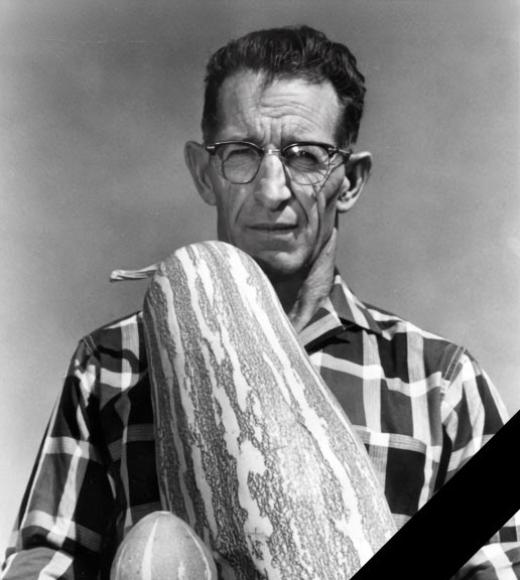
Position Title
In Memoriam
Professor Emeritus, Department Chair
1906-1969
GLEN N. DAVIS
Birth: August 18, 1906, Vroman, Colorado
Death: November 2, 1969, Davis, California
Education
- B.S., Agronomy, Colorado State College, 1929
- M.S., Plant Pathology, Iowa State College, 1930
- Ph.D., Plant Pathology, Iowa State College, 1934
Employment
- Research Fellow and Graduate Assistant, Iowa State College (1929–1934)
- Research Assistant, Agricultural Experiment Station, Iowa State College (1934–1938)
- Professor and Olericulturist, Department of Vegetable Crops, UC Davis (1938–1969)
- Acting Chair, Department of Vegetable Crops (two terms)
Honors, Awards, and Professional Societies
- American Phytopathological Society
- American Society for Horticultural Science
- Sigma Xi
- Alpha Zeta
- Phi Kappa Phi
- Quarter Century Club, UC Davis
Research Contributions and Impact
Glen Davis conducted influential research in vegetable crop improvement, focusing on disease resistance. His work addressed problems in tomatoes, onions, potatoes, and a wide range of cucurbits, including cantaloupes, watermelons, and squash. He developed several widely used cultivars, including Baby Persian, Golden Pershaw, PMR-5 to PMR-7, Jacumba, and Campo cantaloupes; Baby Klondike and RS-57 Klondike watermelons; Orange Banana squash; and Hybrid Red, San Joaquin, and Excel onions. His breeding efforts emphasized resistance to pathogens such as pink root, downy mildew, and scab, and he advanced knowledge on combining ability, heterosis, pollination biology, and seed viability in vegetable crops.
Publications and Scholarly Leadership
Davis co-authored the leading global text on cucurbits with colleague Thomas W. Whitaker. He also wrote and regularly revised UC Agricultural Experiment Station bulletins on the production of cantaloupes, cucumbers, watermelons, potatoes, and onions, establishing himself as a key figure in the literature on vegetable production.
Teaching and Mentorship
As a professor, Davis guided numerous graduate students in fields ranging from cytogenetics to biochemical physiology. His students completed wide-ranging thesis topics under his mentorship, often inspired by his field-based, practical research style. He also served as an advisor to undergraduate majors, providing them with thoughtful guidance to support their academic growth.
Collaboration and Community
Davis maintained active collaborations with USDA scientists, UC colleagues across campuses, and the vegetable industry. He contributed to Cooperative Extension efforts and participated in FFA judging and 4-H leadership. His departmental service included work on numerous committees and a commitment to supporting research and outreach efforts throughout the state.
Legacy
Glen Davis left a lasting mark on the field of vegetable crop improvement through the development of disease-resistant cultivars and contributions to plant breeding methodologies. His role in authoring production guides and advancing cucurbit research helped define mid-20th-century vegetable horticulture in California and beyond. His mentorship fostered a generation of plant scientists, and his leadership in research and service remains part of the department’s foundation.
